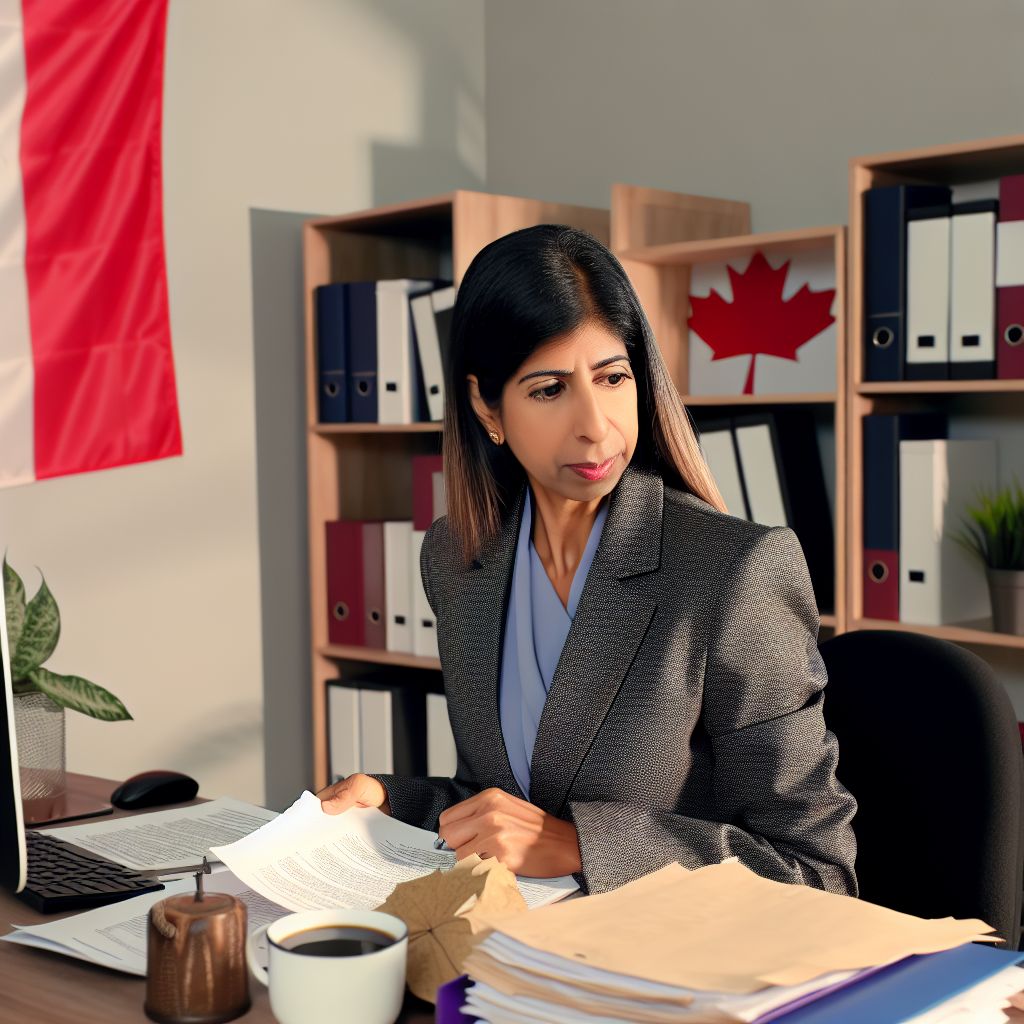Introduction to Trust and Estate Practitioners
Defining Trust and Estate Practitioners
Trust and estate practitioners specialize in managing and advising on estate planning.
Their role often involves assisting clients with wills and trusts.
They help ensure the proper distribution of assets after death.
Additionally, these professionals offer guidance on tax implications.
Key Responsibilities of These Practitioners
Trust and estate practitioners perform several important functions.
They analyze financial situations and develop comprehensive plans.
Another key responsibility is to communicate clearly with clients.
They must also stay updated on changing legislation.
The Importance of Estate Planning
Effective estate planning is increasingly vital in today’s complex landscape.
It protects assets and ensures that personal wishes are honored.
Without a proper plan, families may experience additional stress during difficult times.
Moreover, a well-structured estate plan minimizes potential disputes among heirs.
Growing Demand for Their Services
As populations age, the demand for trust and estate practitioners is rising.
Many individuals recognize the need for professional assistance in planning.
This trend highlights the increasing complexity of modern financial instruments.
Additionally, more people seek to secure their legacies for future generations.
Current Trends in Wealth Distribution and the Impact on Estate Planning
Shifts in Wealth Distribution
Wealth distribution is continually evolving in today’s economic landscape.
Recent studies reveal a concentration of wealth among a small percentage of individuals.
Simultaneously, middle-class wealth shows signs of stagnation or decline.
This disparity affects the way families plan their estates.
Understanding these trends is crucial for effective estate planning.
Impact on Trust and Estate Practitioners
As wealth concentration increases, the demand for trust and estate practitioners rises.
Individuals seek professional guidance for managing and distributing assets.
Practitioners must stay informed about current regulations and tax laws.
This knowledge empowers clients to make informed decisions.
Unlock Your Career Potential
Visualize a clear path to success with our tailored Career Consulting service. Personalized insights in just 1-3 days.
Get StartedChanging Family Dynamics
Modern families sometimes include blended and multi-generational structures.
These dynamics complicate estate planning efforts.
Practitioners must navigate these complexities with sensitivity and expertise.
Additionally, clients emphasize the importance of leaving a legacy.
They want to ensure that assets benefit future generations.
Technology’s Role in Estate Planning
Technology is transforming the way estate planning is approached.
Software tools assist in analyzing assets and potential tax implications.
Online platforms offer resources for clients to learn about estate planning.
Furthermore, virtual consultations have become increasingly popular.
These innovations make estate planning more accessible for clients.
Demographic Influences
Millennials and Gen Z are entering their own wealth accumulation phases.
This demographic shift prompts new considerations in estate planning.
Young adults value sustainability and social responsibility in their legacy choices.
Estate planners must adapt their approaches to align with these values.
Understanding these unique perspectives strengthens client relationships.
Reasons Behind the Growing Demand for Trust and Estate Practitioners
Increased Wealth Distribution
The distribution of wealth is evolving rapidly in today’s society.
Many individuals are inheriting significant assets from previous generations.
This surge in wealth creates a greater need for skilled practitioners.
Trust and estate professionals help navigate complex financial landscapes.
They offer guidance on tax implications and asset management.
Aging Population
The aging population is a major factor driving demand.
As people live longer, their estate planning needs become more urgent.
Older individuals require comprehensive strategies to protect their assets.
Trust and estate practitioners provide tailored solutions for long-term care.
Moreover, they help ensure smooth transitions after a person’s passing.
Complex Family Structures
Today’s family dynamics are more complex than ever.
Families often include blended structures and diverse relationships.
This complexity necessitates careful planning for asset distribution.
Trust and estate practitioners address potential conflicts and concerns.
They ensure that everyone’s wishes are honored appropriately.
Growing Awareness of Estate Planning
There is a rising awareness about the importance of estate planning.
Individuals increasingly understand the need for proactive measures.
Consequently, more people seek professional advice for their estate needs.
Educational resources have played a significant role in this awareness.
As a result, trust and estate practitioners are witnessing more inquiries.
Changes in Legislation
Recent changes in laws and regulations affect estate planning strategies.
Professionals must stay updated on evolving legal frameworks.
This ensures that clients receive relevant and effective solutions.
Furthermore, compliance with new tax laws can be challenging.
Trust and estate practitioners help navigate these complexities efficiently.
Learn More: Tips for New Compliance Officers Entering the Workforce
The Role of Trust and Estate Practitioners in Navigating Complex Legislation
Understanding Complex Legislation
Complex legislation shapes the landscape of trust and estate planning.
Practitioners must stay updated on legal changes and requirements.
This knowledge allows them to advise clients accurately.
Moreover, changes often arise unexpectedly, creating challenges.
The Importance of Expertise
Expertise is crucial in managing trusts and estates effectively.
Practitioners often possess specialized knowledge in tax laws.
They understand how these laws impact estate planning strategies.
Additionally, they navigate the nuances of state and federal regulations.
Advising Clients on Compliance
Trust and estate practitioners guide clients through compliance obligations.
They help clients prepare necessary documentation for legal adherence.
This includes wills, trusts, and other important legal instruments.
Furthermore, they ensure all actions comply with prevailing laws.
Encouraging Strategic Planning
Strategic planning is essential for effective estate management.
Practitioners assist clients in setting long-term objectives for their estates.
They evaluate financial and familial circumstances to create personalized plans.
Such plans minimize taxes and maximize benefits for beneficiaries.
Navigating Disputes
Disputes can arise despite careful planning and compliance.
Practitioners play a vital role in resolving these conflicts.
They often serve as mediators to facilitate discussions between parties.
Through negotiation, they aim to reach mutually beneficial outcomes.
Building Trust with Clients
Trust between practitioners and clients is fundamental.
Practitioners must demonstrate reliability and integrity in their work.
Open communication fosters stronger relationships over time.
Moreover, clients benefit from feeling confident in their decisions.
Keeping Abreast of Trends
Trust and estate practitioners must monitor industry trends continuously.
They attend seminars and workshops to enhance their knowledge.
This commitment to learning helps them provide relevant advice.
Ultimately, staying informed allows them to serve clients better.
Find Out More: How Law Clerks Prepare Legal Documents in Canada
Key Skills and Qualifications Required for Trust and Estate Practitioners
Essential Educational Background
A solid educational foundation is crucial for trust and estate practitioners.
A degree in law, finance, or accounting is often preferred.
Advanced degrees or certifications enhance a practitioner’s credibility.
Relevant courses in estate planning, tax law, and fiduciary administration are beneficial.
Critical Analytical Skills
Trust and estate practitioners must possess strong analytical skills.
They need the ability to assess individual client needs effectively.
Additionally, they analyze complex legal and financial documents.
Critical thinking aids in developing tailored strategies for clients.
Effective Communication Abilities
Communication skills are vital for building client relationships.
Practitioners must clearly explain complex concepts and processes.
Active listening enables them to understand client goals accurately.
Moreover, they should write clear and concise documentation.
Strong Ethical Standards
Ethics play a crucial role in the trust and estate field.
Practitioners should adhere strictly to legal and ethical guidelines.
Maintaining client confidentiality is paramount in this profession.
Building trust through ethical practices fosters long-term relationships.
Proficiency in Technology
Technology is increasingly important in trust and estate administration.
Practitioners should be comfortable using various software programs.
Proficiency in document management systems improves workflow efficiency.
Technology aids in accurate record-keeping and compliance tracking.
Interpersonal Skills
Strong interpersonal skills facilitate client interactions.
Trust and estate practitioners often work with diverse clients.
Empathy helps in understanding clients’ emotional and financial situations.
Building rapport is essential for effective client engagement.
Discover More: Career Opportunities for Legal Researchers in Canada

The Impact of Aging Population on Estate Planning Services
Understanding the Aging Population
The aging population significantly affects estate planning services.
Increased life expectancies lead to larger estates.
Moreover, older adults often have more complex financial situations.
They possess diverse assets that require careful management.
As a result, the demand for skilled practitioners rises.
Need for Comprehensive Estate Planning
Comprehensive estate planning ensures that individuals meet their objectives.
Older clients seek guidance to navigate intricate legal requirements.
Additionally, they want to minimize tax liabilities effectively.
Estate practitioners must understand various strategies available.
For instance, using trusts can provide financial security and stability.
Emotional Considerations
Emotional factors play a crucial role in estate planning.
Aging individuals often deal with health-related anxieties.
They need reassurance that their family’s future is secure.
Practitioners should foster trusting relationships with clients.
This approach encourages open discussions about sensitive topics.
Market Trends and Professional Demands
As the proportion of elderly individuals rises, so does market demand.
Professionals must stay updated on changing regulations and trends.
Moreover, they should participate in continuous education opportunities.
Networking with other professionals can enhance their service offerings.
Ultimately, meeting these demands will ensure business growth.
Technology’s Role
Technology significantly influences the estate planning landscape.
Clients increasingly expect digital solutions for their needs.
Online platforms can simplify document storage and accessibility.
Furthermore, virtual consultations provide convenience and flexibility.
Estate practitioners must adapt to these technological advancements.
You Might Also Like: Key Legal Software Tools for Canadian Law Clerks
Technological Advancements and Their Influence on Trust and Estate Practice
Integration of Technology in Estate Planning
The integration of technology reshapes estate planning practices rapidly.
Practitioners now leverage software to streamline document preparation.
This innovation reduces human error and increases efficiency.
Furthermore, electronic signatures have simplified client interactions.
Clients appreciate the convenience offered by digital solutions.
Impact on Client Communication
Technology enhances communication between practitioners and clients.
Video conferencing tools allow for remote consultations worldwide.
This flexibility caters to clients’ busy schedules.
Moreover, secure messaging platforms ensure confidential discussions.
Data Management and Security Enhancements
Data management has significantly improved with cloud technology.
Practitioners can now access documents anywhere at any time.
Yet, security remains a primary concern for trust and estate practitioners.
Advanced encryption methods protect sensitive client data.
Educating Clients about Digital Assets
Digital assets have become integral to many estates today.
Practitioners must educate clients on managing these assets effectively.
Examples include online accounts, cryptocurrencies, and digital portfolios.
Understanding these aspects ensures comprehensive estate planning.
Future Trends in Technological Adoption
Artificial Intelligence (AI) will likely shape future practices.
AI can analyze client data and identify tailored recommendations.
Additionally, blockchain technology promises enhanced security and transparency.
Such advancements will revolutionize how practitioners handle estates.
Future Outlook: Education and Training for Aspiring Trust and Estate Practitioners
Increasing Educational Opportunities
The demand for educated trust and estate practitioners is rising.
This demand necessitates more educational institutions offering specialized programs.
Many universities now provide advanced degrees in estate planning and trust management.
Additionally, online courses have become a popular alternative for aspiring professionals.
Certification and Licensing Requirements
Certification enhances credibility in this competitive field.
Organizations like the National Association of Estate Planners and Councils offer certifications.
These credentials require continuing education to maintain their validity.
As such, professionals must stay updated on legal and regulatory changes.
Mentorship Opportunities
Mentorship plays a crucial role in professional development.
Experienced practitioners can share valuable insights with newcomers.
Many firms encourage mentorship programs to build a strong workforce.
Moreover, networking events allow aspiring practitioners to meet industry leaders.
Industry Workshops and Seminars
Participating in workshops enhances knowledge and skills.
These events often cover emerging trends and best practices.
Professionals gain hands-on experience through practical exercises.
Furthermore, seminars provide opportunities for peer discussions and learning.
Online Resources and Communities
The internet has made access to information easier than ever.
Webinars, online forums, and social media groups can facilitate learning.
These resources help professionals share experiences and advice.
Additionally, they foster a sense of community among practitioners.
Additional Resources
Estate Lawyers & Attorneys in the US – Market Research Report …




